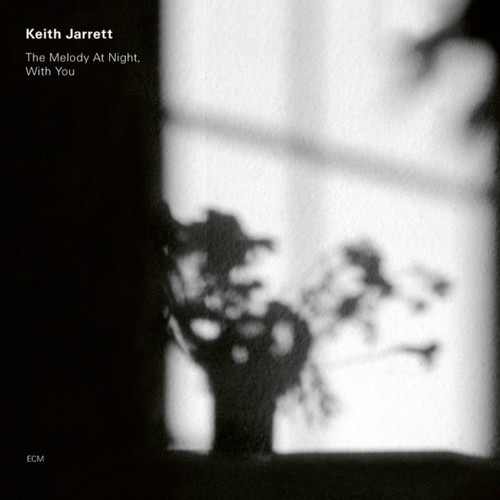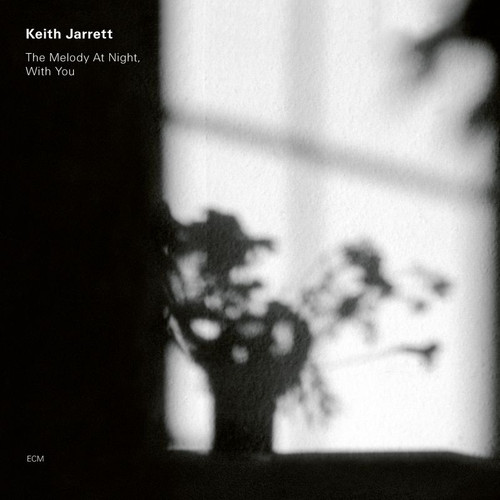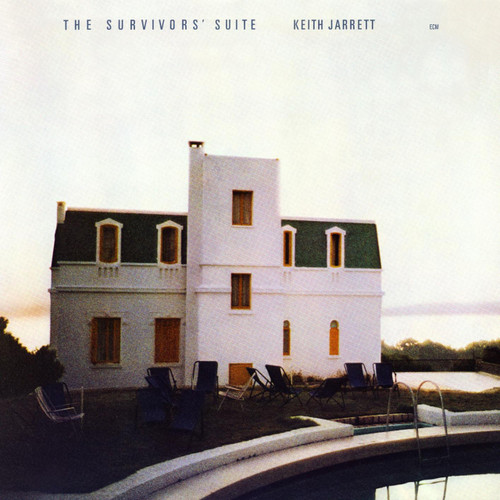Tender is the night on what is, perhaps, Keith Jarrett's most intimate album. It is comprised of solo piano renderings of jazz ballads and folk songs, recorded at home and played with unmistakable affection. Jarrett dispenses with the jazz soloist's conventional emphasis on dexterity, the 'clever' phrase, the virtuosic sleight-of-hand. Instead he strips these songs to their melodic essence and, gently, lays bare their emotional core.
Tracklist:
1 I Loves You Porgy 5:44
2 I Got It Bad And That Ain't Good 7:05
3 Don't Ever Leave Me 2:42
4 Someone To Watch Over Me 4:59
5 My Wild Irish Rose 5:15
Blame It On My Youth / Meditation (7:13)
6.1 Blame It On My Youth 3:32
6.2 Meditation 3:41
7 Something To Remember You By 7:11
8 Be My Love 5:33
9 Shenandoah 5:46
10 I'm Through With Love 2:56
Piano – Keith Jarrett
BACKGROUND
“The Melody At Night, With You”, Keith Jarrett’s radiant new solo album, breaks patterns established by its predecessors. Firstly, it is not a concert recording, but was recorded at the pianist’s home studio in rural New Jersey. Secondly, it concerns itself not with improvisation as a compositional process in Jarrett’s long-running “solo concerts” tradition but with the finely-crafted material at hand – love songs, by some of the outstanding songwriters of the century, including Duke Ellington, George and Ira Gershwin, Oscar Hammerstein and Jerome Kern, Oscar Levant, and others, plus interpretations of the traditional songs “My Wild Irish Rose” and “Shenandoah”. An album of “standards” played solo, its character is quite unlike that of the ebullient, outgoing “Standards Trio” – and yet Keith has often performed these pieces and recorded some of them previously, including “Blame It On My Youth” and “Don’t Ever Leave Me” in his group with Gary Peacock and Jack DeJohnette (see for instance the albums “At The Blue Note” and “The Cure”).
On “The Melody At Night”, Keith Jarrett dispenses with the jazz soloist’s conventional emphasis on dexterity, the “clever” phrase, the virtuosic sleight-of-hand. Instead he strips these songs to their melodic essence and, gently, lays bare their emotional core. Only on Ellington’s “I Got It Bad And That Ain’t Good” does he let rip with a cascading solo of glittering elegance. Elsewhere the mood is tender, hushed and affectionate on what may be Jarrett’s most intimate recording to date. If “The Melody” resembles anything else in his performing history, then it is those moments at the conclusion of one of his solo concerts when, case proven, journey completed, he has given an informal reading of “Danny Boy” or “Over The Rainbow” as a parting gift to the audience.
When Jarrett first embarked, back in the early 1980s, upon what has become a meticulous reinvestigation of the American popular songbook he pointed out, “It’s the same thing playing Samuel Barber or ‘All The Things You Are’. The problem is not that one is easier or harder. To enter is the problem... When a standard tune is well-written it provides the door, but you don’t just enter and sit there. You have to keep making the space vital.” The variety of means with which Jarrett has vitalized that space has been one of the most fascinating aspects of his reclaiming of the jazz standard. His approach here recalls his now-famous remark on the occasion of his first Bach recordings: “This music doesn’t need my help.” Again and again he draws our attention to the structure of these songs and shows what melody can mean when persuasively played, while also keeping in focus a sense of the songs’ lyrics. He doesn’t allow himself to forget what these pieces are about.
Jarrett’s work with standard material has often brought him to new ideas of his own, and here Oscar Levant’s “Blame It On My Youth”, played with more than a hint of regret, leads him to an improvisation that he titles “Meditation”, a dark vamp with a pedal point in the bass that tolls ominously, like a church bell at midnight.
Other pieces require little introduction. The traditional folk songs “My Wild Irish Rose” and “Shenandoah” are uncommon choices for a jazz player, although Chick Webb used to play the former and Johnny Smith the latter. “I Loves You Porgy” from the 1935 folk opera “Porgy and Bess” is played with restraint, Jarrett assiduously avoiding the over-emotional treatment the piece so frequently receives. “Be My Love” was an enormous hit for operatic tenor Mario Lanza in 1951 and later found its way into the repertoires of several jazz players including Phil Woods and Ahmad Jamal.
“The Melody At Night, With You” is dedicated to Jarrett’s wife Rose Anne.







